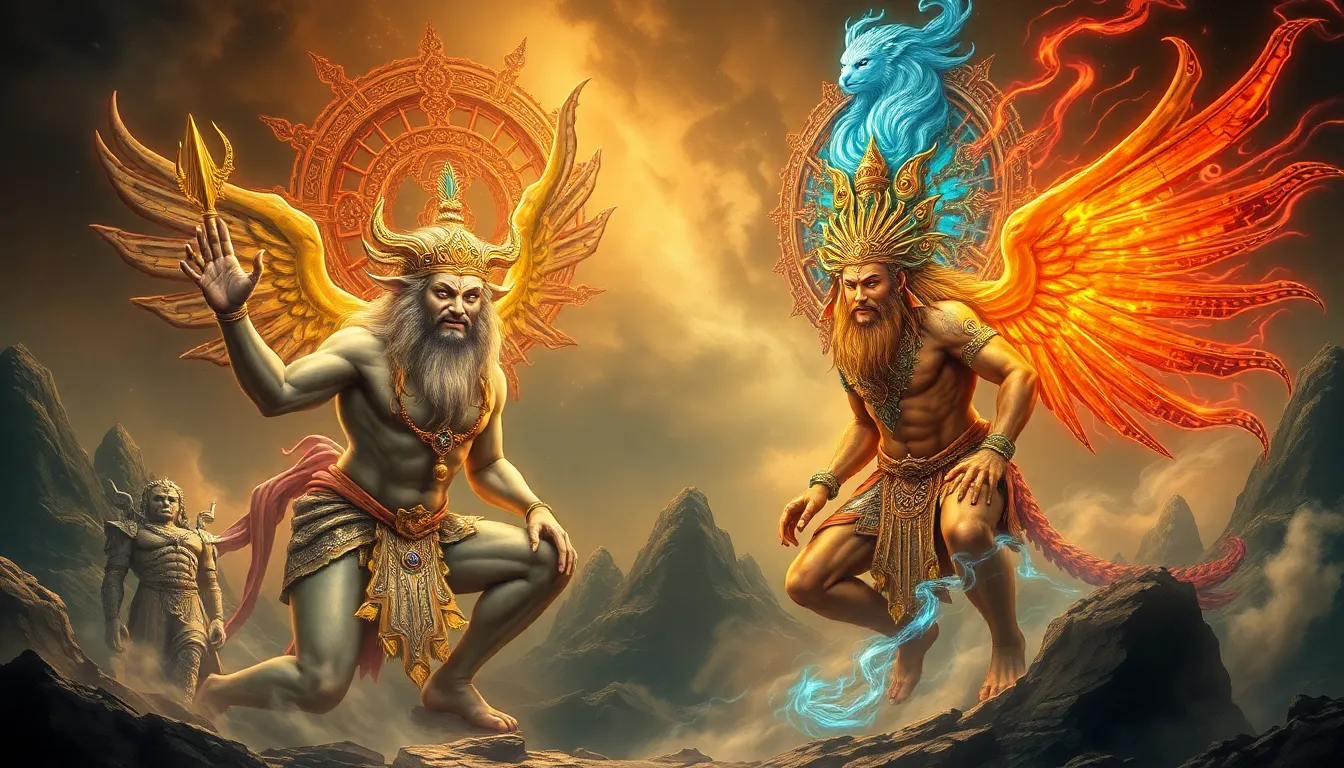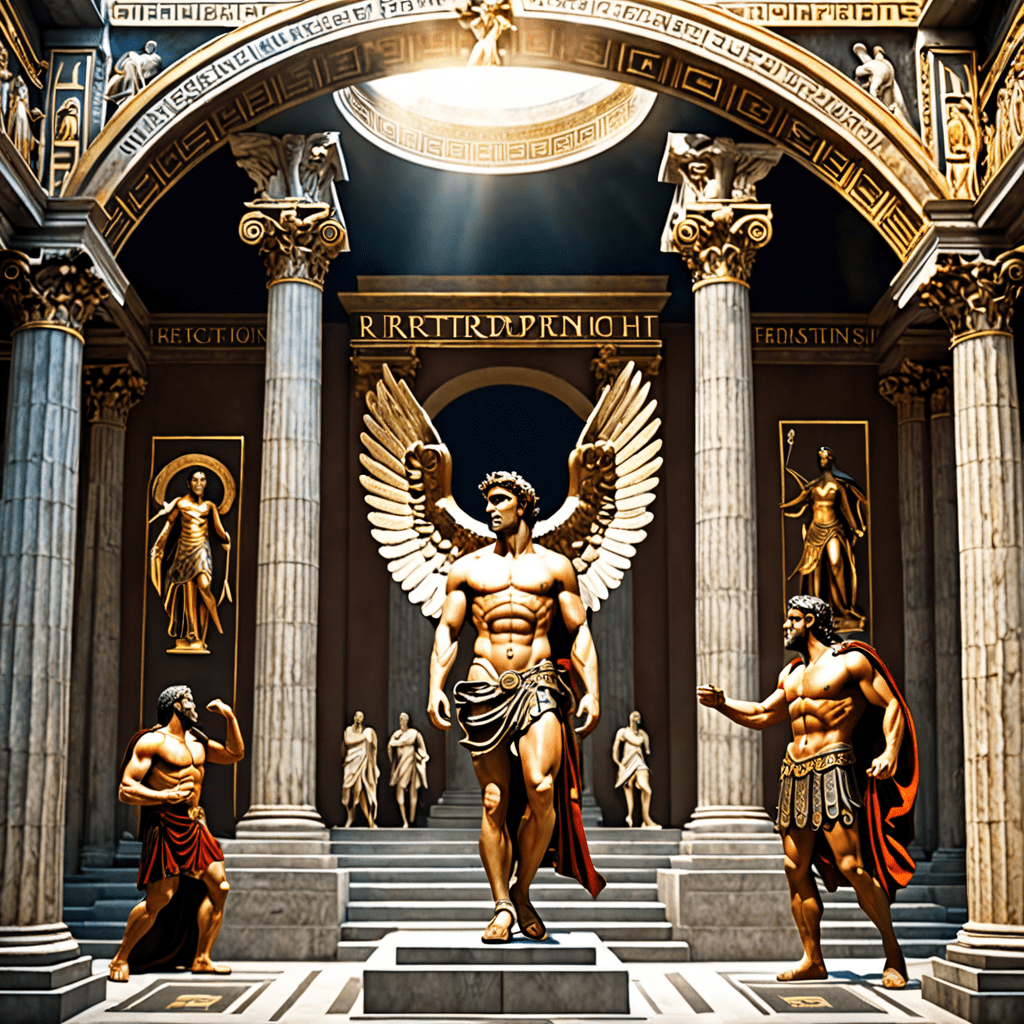Ancient Deities and Their Modern-Day Counterparts
Introduction: The Enduring Legacy of Ancient Deities
Ancient religions have shaped human civilization for millennia, offering explanations for the mysteries of existence and providing frameworks for morality, community, and governance. The pantheons of gods and goddesses from various cultures have left a lasting legacy that resonates even in contemporary society. As we explore the attributes and stories of these deities, we uncover their modern-day counterparts—figures and symbols that echo the values and characteristics embodied by the gods of old.
The Pantheon of Ancient Gods: An Overview
Across cultures, ancient deities played vital roles in mythology, reflecting the values and beliefs of their societies. Here are some notable pantheons:
- Greek Mythology: Zeus, Hera, Athena, and Hades.
- Roman Mythology: Jupiter, Venus, Mars, and Pluto.
- Egyptian Mythology: Ra, Isis, Osiris, and Anubis.
- Norse Mythology: Odin, Thor, Freyja, and Loki.
These deities were not merely figures of worship; they were integral to the social and political structures of their time, influencing everything from laws to art. Mythology served as a means of understanding the world, providing narratives that explained natural phenomena and human experiences.
Archetypes of Power: Zeus and Modern Leadership Figures
Zeus, the king of the Greek gods and the god of thunder, represents authority, power, and justice. His character is often depicted as a ruler who wields immense control over gods and mortals alike. In the modern world, we can draw parallels between Zeus and contemporary leaders, whether in politics or business.
- Political Leaders: Figures like presidents and prime ministers often embody traits reminiscent of Zeus—commanding presence, decision-making authority, and the ability to shape national destinies.
- Business Executives: CEOs and corporate leaders who guide large organizations reflect Zeus’s leadership qualities through strategic vision and influence.
Both ancient and modern leaders navigate complex challenges, often facing moral dilemmas that can affect their followers’ lives, echoing Zeus’s multifaceted role in mythology.
Goddesses of Love and Fertility: Venus and Modern Representations of Femininity
Venus, known as Aphrodite in Greek mythology, embodies beauty, love, and fertility. As a goddess, she influences romantic relationships and the pursuit of aesthetic ideals. In today’s society, Venus’s essence can be seen in various representations of femininity and empowerment.
- Media Representations: Celebrities, fashion icons, and influencers often embody the traits associated with Venus, promoting standards of beauty and femininity.
- Feminist Icons: Modern movements advocating for women’s rights and empowerment can also be linked to Venus, as they challenge traditional notions of femininity and promote self-love and acceptance.
The celebration of love and beauty remains a vital aspect of human culture, with Venus’s archetype continuing to inspire and empower individuals today.
War and Valor: Mars and the Modern Warrior Archetype
Mars, the Roman god of war, represents valor, strength, and conflict. His narratives often glorify the heroism associated with battle and the complexities of warfare. Today, the archetype of the warrior continues to find expression in various forms.
- Military Figures: Modern soldiers and military leaders personify the qualities of Mars, embodying bravery and strategic prowess in times of conflict.
- Popular Culture: Movies, video games, and literature often feature warrior characters that draw inspiration from Mars, celebrating heroism, sacrifice, and the struggles of battle.
Through these representations, society continues to grapple with themes of conflict, bravery, and the moral implications of warfare, reflecting the enduring influence of Mars.
Nature Deities: Demeter and Today’s Environmental Movement
Demeter, the Greek goddess of the harvest, symbolizes the earth’s fertility and the cycles of nature. Her influence is profoundly felt in contemporary discussions surrounding environmentalism and sustainability.
- Environmental Activism: Modern activists and movements that advocate for the protection of nature and sustainable practices resonate with Demeter’s nurturing spirit.
- Agricultural Practices: The reverence for the land and its resources can be seen in contemporary farming practices that emphasize stewardship and respect for the earth, mirroring Demeter’s role in agriculture.
As society seeks to address climate change and environmental degradation, the legacy of Demeter serves as a reminder of the interconnectedness between humanity and nature.
Tricksters of the Past: Loki and Contemporary Anti-Heroes
Loki, the Norse god of mischief, embodies chaos, cunning, and complexity. His character challenges societal norms and expectations, making him a fascinating figure in mythology. In modern media, the anti-hero archetype draws heavily from Loki’s traits.
- Film and Television: Characters such as Deadpool, Walter White from “Breaking Bad,” and other anti-heroes showcase moral ambiguity and complex motivations, much like Loki.
- Literature: Modern novels often feature protagonists who defy traditional heroic traits, reflecting the appeal of characters that challenge authority and societal norms.
Loki’s legacy highlights the allure of the anti-hero, illustrating that complexity and imperfection are often more relatable than traditional heroism.
Spiritual Guardians: Anubis and Modern Concepts of Death and Afterlife
Anubis, the ancient Egyptian god of the afterlife, symbolizes protection, guidance, and the transition between life and death. In contemporary society, beliefs and practices surrounding death and spirituality continue to evolve, reflecting Anubis’s influence.
- Modern Spirituality: New Age beliefs and practices often incorporate elements of ancient wisdom, including ideas about the afterlife and spiritual guardianship.
- Funeral Practices: The rituals surrounding death, including memorial services and celebrations of life, echo the reverence for Anubis’s role in guiding souls.
As society navigates its understanding of mortality, Anubis’s legacy offers insights into the ways we honor and remember those who have passed.
The Influence of Ancient Deities in Popular Culture
The portrayal of ancient gods in literature, film, and art remains a powerful testament to their enduring influence. From blockbuster movies to bestselling novels, ancient mythology continues to inspire modern storytelling.
- Literature: Books like Rick Riordan’s “Percy Jackson” series bring ancient mythologies to life for new generations.
- Film: Movies such as “Clash of the Titans” and Marvel’s “Thor” showcase the fascination with ancient deities, blending traditional narratives with contemporary storytelling techniques.
- Art: Modern art often draws on mythological themes, using ancient symbols to explore contemporary issues and human experiences.
This intersection of ancient mythology and modern creativity demonstrates the timelessness of these narratives and their ability to resonate across cultures and eras.
Conclusion: The Relevance of Ancient Deities in the Modern World
The enduring influence of ancient deities signifies not only the cultural heritage of humanity but also the universal themes that connect us through time. By understanding the characteristics and stories of these gods, we gain insights into our own lives and societies. The exploration of ancient mythology provides a framework for examining modern identities, values, and challenges, reminding us that the past is never truly gone—it lives on in the narratives we tell and the figures we revere.




